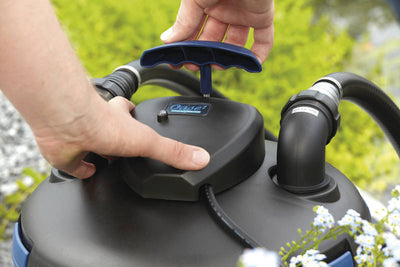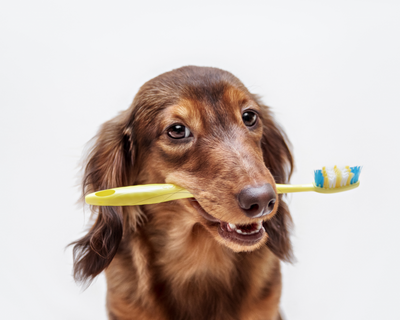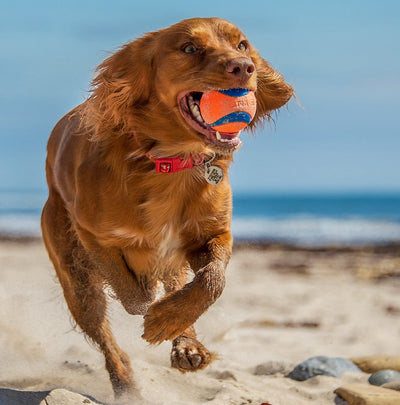your dog's anatomy, you will notice powerful forelimbs that are reinforced by strong nails. Essentially, they are designed for digging. Some breeds are more genetically prone to digging, for example, terriers, hounds, and even sporting breeds. Despite their domestication, many of these breeds will still have the urge to dig, and, it may be to bury a treat or toy in your lounge.

There are numerous reasons or needs for dogs to dig.
- to keep cool
- pure enjoyment
- hunting or following a scent
- boredom
-
to escape their yard and roam
While it's difficult to stop a dog from digging, there are things that you can do to help improve the situation.
- Have your dog desexed
- Manage the situation
- Work with your dog
- Prevent boredom
- Give your dog a bone
Bones are traditionally treated as something of value or a trophy for dogs. May will bury them immediately to save it for later. By feeding your dog raw meaty or air-dried bones, you are stimulating another natural behaviour - chewing! The chewing process in turn helps with dental health and will assist with keeping your dog occupied. Whether your dog chews for hours on a bone or buries it, you have mentally stimulated them by triggering an innate behaviour dating back to wolves.
For further information, call in & see us in the store, or email us: admin@weknowpets.com.au
4/72-76 Station St Bowral NSW 2576
PH: 024862 1175
© weknowpets 2021






